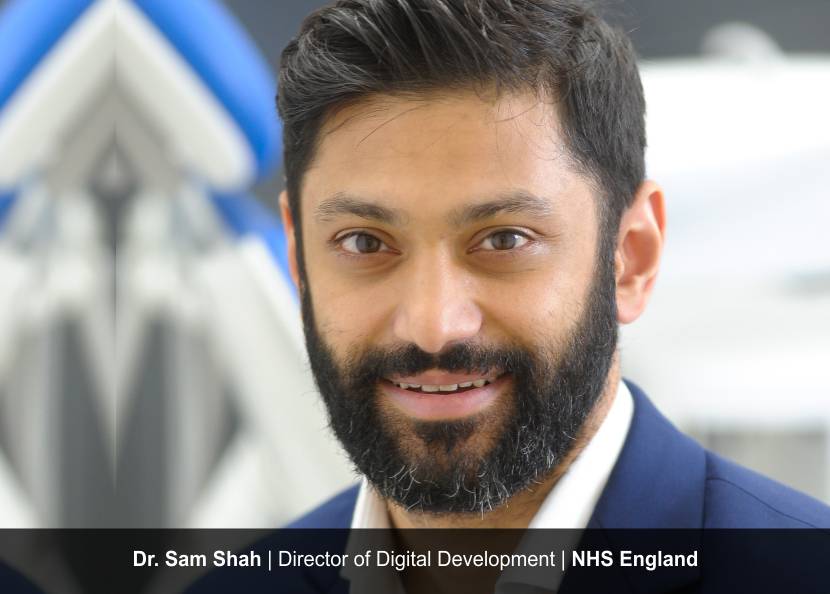Is digital transformation a reality in healthcare?
The 10 Transformational Leaders in Healthcare Vol. 2

Digital transformation can sometimes seem like the emperor’s new
clothes. It’s the thing that everyone is doing and everyone is interested in
yet sometimes hard to define and to quantify. In healthcare this is not that
different to any other industry. The dialogue on digital transformation in many
other sectors focussed on the domains of the Chief Information Officers (CIOs)
and Chief Digital Officers (CDOs). CIOs and CDOs is many sectors have described
some of the tensions of driving digital transformation.
Making the case for digital transformation is itself complex, there will
be uncertainty and unknown outcomes. It’s a sector that is moving at such pace
that making predictions about the type of technology and the type of benefit is
difficult and relies on a mixture of insights, evidence and global trends.
Digital transformation will inevitably mean different things in different
settings, the ability to transform will be dependent on culture, technology,
legacy and funding as well as competing interests and priorities.
Digital transformation opens up a whole new language and itself can lead
to differences in understanding and outcome. We could simply assume that this
is the fault of managers, decision-makers and digital leaders. Equally, the
ground swell in the ecosystem of startups, SMEs and technology suppliers
badging themselves under the umbrella of digital transformation can be equally
confusing. Digital transformation has always been about significant
transformation of activities and processes that capitalise on opportunities
from digital technology. The impact of this change is intended to span society,
it should be strategic and co-ordinated, i.e. there should be some sense of
order.
Positioning digital
transformation
In the context of healthcare, digital transformation needs to move to
the core of business, policy and strategy. It needs to be seen as the future of
how the health system operates, it can no longer really be about specific
individual projects but has to be about an enterprise type approach, almost a
philosophy that spans the entire organisation.
Within the NHS as a type of federated organisation, this culture towards
digital transformation needs to form part of the mindset of decision-makers
throughout the health system. Already we have seen the impact on society and
almost every industry by the adoption of mobile, social media, cloud and data.
The rate and pace of development amongst accelerators is happening at speed
perhaps not previously envisaged. These accelerators or emerging technologies
include distributed ledger technology, artificial intelligence, extreme reality
and quantum computing.
The next generation of technology is evolving at a faster rate than the
previous generation. Digital transformation will rely on digital leaders and
decision-makers having a better understanding of emerging technology. This will
require new partnerships, with healthcare leaders more willing to share
problems and technology providers forming a different way of working offering
openness and transparency in their capability.
Decision-makers and leaders in healthcare need to be able to leverage
information that will help guide better decisions. In healthcare we have the
added advantage of having CIOs, CDOs and CCIOs amongst many other types of
digital leader that can offer advice. System leaders and policy makers don’t
need to understand the specifics of the technology itself or decide on the
technology outcome, but really need to be able to define the business,
operational or health outcome they are seeking. Digital health leaders will
need to be in a position where they can guide those discussions and advise on
the impact of emerging technology.
Shifting the scale and
culture of transformation
In every sector, businesses are becoming digital businesses. It’s likely
the same will emerge in parts of healthcare to a greater or lesser degree over
time. We are already seeing the emergence of this in different parts of primary
care in the NHS, and its likely to be the case in diagnostic imaging before
long. With this in mind, the scale of digital transformation may need to shift
from something that is currently based on geography or single organisational
unit to something that takes more of an enterprise approach — this will also
require a shift that changes the entire culture of an organisation to thinking
digital.
Healthcare has no shortage of leaders and certainly in the NHS, the
governance of State is based on accountability and having senior responsible
officers and accountable officers, none of this comes at odds with digital
transformation but requires a different type of collaboration. CIOs, CCIOs,
CDOs and other digital health leaders are relevant and necessary but more
importantly digital transformation needs to belong to the whole organisation
and to all leaders, supporting an approach where people can collaborate beyond
organisational boundaries.
Within the NHS, digital projects have often started with single problems
or single elements of the system. Digital transformation has to be more than
this, it has to involve all parts of the system that are connected in some way,
recognising the different types of user and stakeholders.
Digital transformation in healthcare is a significant change in the way
we currently operate and is likely to evolve at pace; it offers an opportunity
to take an enterprise approach to healthcare and improving outcomes.
You can also find out more about digital
transformation in the NHS at the HIMSS DM Salford Summit next week, taking
place on 14 and 15 May at the Salford Royal NHS Foundation Trust. Healthcare IT
News is a HIMSS Media publication.













